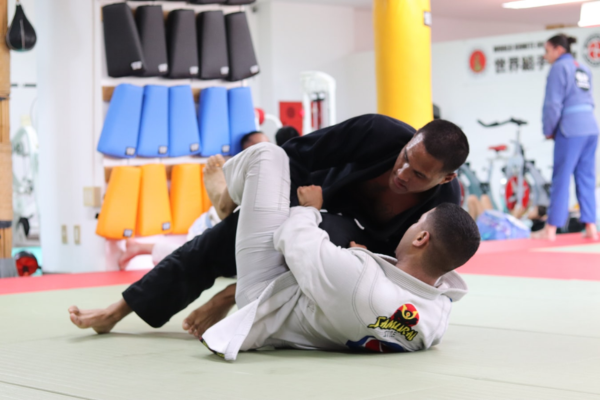Martial arts and weight loss: How effective is it as a workout?

In martial arts, it’s all about discipline, perseverance, and progress. Every training session brings you one step closer to your goals, whether that’s improving your conditioning, technique, or mental strength. But what if that dedication turns into overtraining? Overtraining is a pitfall many fighters, both beginners and advanced, face sooner or later. It’s the result of too much strain with too little recovery time. At Fightstyle, we don’t just want to support your performance — we want to protect your well-being. Because training without rest is like punching without a guard: you end up hurting yourself more than you’d like.
Overtraining often creeps up slowly. You want more, better, harder. But without a balance between load and recovery, you undermine the progress you strive for. And that’s a shame because martial arts is a journey of growth — not exhaustion.
The Physical and Mental Dangers of Overtraining

Overtraining shows itself in many ways. Physically, you may experience recurring injuries, prolonged muscle
soreness, decreased performance, and even hormonal imbalance. Your immune system weakens, making you more susceptible to illness. Your body signals exhaustion, but often you only hear it when it’s too late.
Mentally, overtraining impacts your sleep, concentration, and mood. You lose motivation for workouts you used to enjoy. Perhaps most importantly, the joy of the sport fades. Where martial arts normally give you strength and confidence, overtraining leads to frustration and fatigue. At Fightstyle, we believe mental strength is just as important as physical fitness — and that starts with listening to your limits.
Signs That Indicate Overtraining
Your body speaks — the question is whether you listen. Signs of overtraining can be subtle but are almost always present. Think of persistent fatigue even after a rest day. You recover slower, suffer more muscle soreness, and your performance drops.
You may feel restless or, conversely, lack energy. Sleep can be restless or interrupted. Motivation wanes, and frustration grows during training. Physical changes like muscle loss, increased fat, or constant hunger may also appear. These are warning signs not to ignore.
Why Fighters Are Extra Vulnerable to Overtraining
Martial arts demand a lot from your body and mind. You often combine strength, speed, endurance, and technique in one session. Add sparring, bag work, or strength training, and your body runs at full throttle. Plus, the martial arts mentality is “always push through” — quitting is not an option. But that mindset makes fighters vulnerable to overtraining.
Many train six or seven days a week, often without structured recovery. And although your body is strong, it needs rest to get stronger. Especially if you take your sport seriously, you must take rest and balance seriously too.
Prevention: How to Avoid Overtraining

Prevention is better than cure — especially for overtraining. The key is a balanced training schedule. Alternate intense and lighter sessions.
Schedule rest days and treat recovery as seriously as technique training. Use active rest days for mobility exercises, light cardio, or yoga.
Monitoring is also crucial. Track how you feel post-training, your resting heart rate, sleep quality, and recovery speed. This gives insight into your load capacity. Eat balanced meals rich in protein, complex carbs, healthy fats, and micronutrients. Don’t forget hydration: dehydration delays recovery.
Most importantly: be honest with yourself. Skipping a workout when your body isn’t ready isn’t weakness — it’s smart training.
The Role of Nutrition, Sleep, and Mindset
Nutrition and sleep are the foundations of recovery. After tough training, your body needs nutrients to repair and strengthen. Choose meals high in protein, complex carbs, and healthy fats. Aim for 7 to 8 hours of quality sleep per night.
Your mindset plays a key role too. See rest not as a setback, but as an investment in progress. The best fighters know breaks are strategic. Fightstyle supports fighters who take care of their bodies — because true growth comes from smart training and proper recovery.
Train Smart, Not Just Hard — Choose a Sustainable Rhythm
Training to the limit sounds tough but rarely gets you far without a smart plan. Build a rhythm you can sustain, with room for growth and breaks. Use training planners, work with a coach, or set realistic goals. Regularly evaluate progress and adjust as needed. Your body is not a machine — it’s a complex system that deserves care and attention.
At Fightstyle, we believe in sustainable growth. We help you become stronger, fitter, and wiser as a fighter — without burning out. Because your future performance depends not on how much you train, but on how well you approach it.
 Nederlands
Nederlands English
English Deutsch
Deutsch Français
Français


Super inspirerend artikel! 🔥 Ik vind het vooral sterk dat je benadrukt dat vechtsport niet alleen een fysieke workout is, maar ook mentaal zoveel verschil maakt. Dat maakt het echt aantrekkelijker dan eindeloos cardio. Heb je misschien tips welke vechtsport je het beste kunt kiezen als je vooral wilt afvallen en conditie wilt opbouwen, zonder direct te hoeven sparren?
Leave a comment